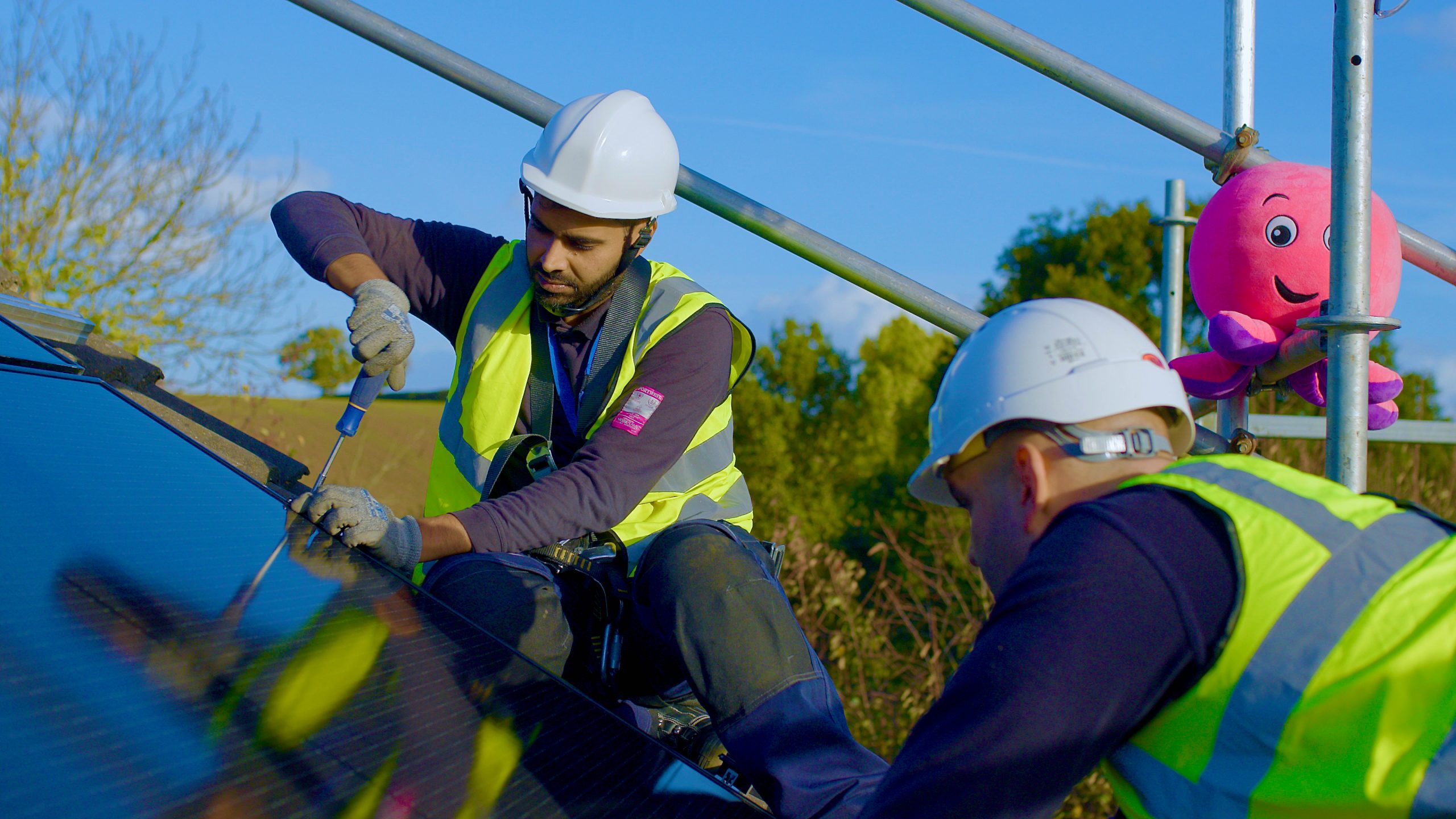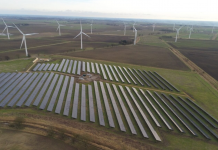Multilegged electricity kraken Octopus Energy solar-shocked Britain’s PV installers today, announcing it is now offering its own installation of on-roof systems and batteries for homes.
Now in its eighth year, Greg Jackson’s privately held international mega-investor says solar installation helps it create nearly 200 UK jobs, as it targets 3,000 roofs this year, starting in southern England and the Midlands. A fast ramp-up is promised.
A nationwide brand recognised from repeated TV advertising, and with 4.9 million retail accounts following its absorption last month of failed supplier Bulb, Octopus ranks third among UK energy retailers, behind British Gas and E-on.
Octopus is backing its battery and on-roof instals with what it claims are Briain’s best rates for buying homeowners’ unstored electricity, made from light. Its standard tariff of 15 pence per kWh to buy householders’ exported power is three times higher than rivals’ offerings, the firm says.
More rewarding still is a variable alternative, a floating export tariff linked to market prices for wholesale electricity.
Agile Outgoing links a customer’s “spilled” generation via Kraken, the firm’s fulfilment platform, into realtime prices seen on trading markets. Over the twelve months to last September, customers on this tariff were paid 34p per kWh on average, the firm claims. Some payments peaked at £1.29 per kWh.
Plenty of beak, but Zero bills
Octopus says its stable of installation technology and proprietary know-how now allows some homes to exist free of any energy cost. By installing the technology trio of on-roof panels, a suitcase-sized in-house battery and a heat pump, the firm says houses can become ‘Zero Bills’ properties.
‘Zero Bills’ is Octopus’ own certification. It means homeowners pay nothing for their own consumption. A pilot in Essex saw 22 eligible dwellings made by Ilke Homes sold with the option of incurring ‘Zero Bills’. The partners aim to swell that total to 10,000 homes by 2030.
Octopus views venturing into Britain’s now booming on-roof PV installation scene as filling in a gap. Its Energy Services division already connects up home EV chargers, air-source heat pumps and smart meters.
Octopus Energy Services CEO John Szymik commented: “Given the success we have had in scaling and installing huge swathes of smart, green home energy tech, we are champing at the bit to begin installing the last piece of the puzzle, solar photovoltaic.
There’s a clever cephalopod on my roof
“If more homes in the UK produce clean, green solar energy, we will be able to accelerate the energy transition and bring down system prices for everybody by lowering system costs”, Szymik went on.
“In true Octopus style, we’ll focus on reducing solar installation times down to record levels, hoping to soon make solar panels affordable for everyone.”
Interested customers should register an interest here octopus.energy/homesolar.
Observers see Octopus’ ambitions today for southern homes as another upward surge in the PV installation business’ notorious ‘solar-coaster’.
Over a decade ago, British Gas was the first big generator to venture into direct solar installation on domestic roofs.
Its Hampshire-based PV division rode the short-lived installation boom in 2010, buoyed up by Feed-in-Tariffs then paying 40 pence and more to homeowners for every kWh they generated, plus more for any unwanted power released to the grid.
After alarmed Whitehall officials used England’s courts to sabotage the runway demand they had themselves created, the Centrica offshoot turned away from depressed homes instals, concentrating instead on PV systems for commercial clients.
A publicly funded subsidy supporting home-scale beneficiaries for at least twenty years, the Feed-in Tariff closed for new registrations in March 2019.




